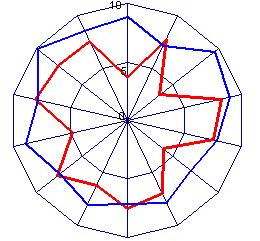
Knowledge Assessment Methodology
Updated March 2006
Welcome to the Knowledge Assessment Methodology 2006 (KAM)! The KAM is an interactive benchmarking tool to help countries identify the challenges and opportunities they face in making the transition to the knowledge-based economy.
The KAM consists of 80 structural and qualitative variables to measure countries' performance on the four Knowledge Economy (KE) pillars: Economic Incentive and Institutional Regime, Education, Innovation, and Information & Communications Technology. Each variable is normalized on a scale of zero to ten relative to other countries in the comparison group. The KAM data also allows to derive country’s overall Knowledge Economy Index (KEI) and Knowledge Index (KI). See the User Guide for more information.
The KAM is available in six different modes:
° Basic Scorecard uses fourteen key variables as proxies to benchmark countries on the aforementioned four KE pillars and derive their overall KEI and KI indexes. The scorecard allows comparisons for up to three countries for 1995 and the most recent available year.
° Global Ranking presents performance scores of all countries on the KEI and KI indexes, as well as on the four KE pillars, in a sortable table format.
° Create Your Own Scorecard allows to use any combination of the 80 variables and to compare up to two countries or regions for the most recent available year.
° Cross-Country Comparison allows bar-chart comparison of up to 20 countries on their KEI and KI indexes while demonstrating the relative contribution of different KE pillars to the countries' overall knowledge readiness.
° Global Over Time Comparison demonstrates countries’ progress on Knowledge Economy pillars and indexes from 1995 to the most recent year.
° World Map provides a color-coded map for the global view of the world’s KE readiness for 1995 and the most recent year.
© 2006









